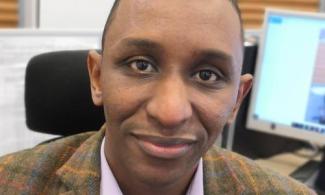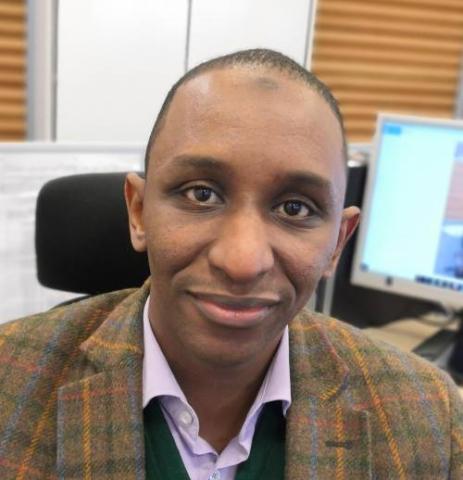
Aside from macroeconomic issues that led the country to experience two recessions during this government's cycle, social issues like banditry, kidnapping, and insurgency, also make the country less attractive for investment.
It's been over six and a half years since this government came into power. On the balance of probability, come 29 May 2023, they will be leaving the country worse than they met it. Notably, they were voted into power to tackle specific issues – mainly insecurity and sleaze. And history will not ignore their failure.
With less than 14 months to 2023 elections, the government should see they have no hope of regaining the moral authority to convince Nigerians to vote for them. The country has regressed under this government in all manners. Cost of living is unbearable, economic activity is poor and the country is currently experiencing its worst capital injection from foreign direct investment (FDI) since 2010. Aside from macroeconomic issues that led the country to experience two recessions during this government's cycle, social issues like banditry, kidnapping, and insurgency, also make the country less attractive for investment.

However, the President thinks that Nigeria is still the most viable investment destination, as he proudly declared during his speech at Expo 2020 Dubai. Like many glaring issues in the country, the government seems not to be keeping a close relationship with reality. His broken promises before becoming the President are better left unsaid. If the government had gotten on top of things earlier, they would have done better in terms of the economy and living standards. But one cannot be wrong to think they are incapable of implementing the change they promised in 2015.
The change in leadership for this country has never had such devastating consequences. So, the effort that goes into denying responsibility or dishonestly justifying its failure is quite phenomenal. It is worth reflecting on how the new media diligently championed the change mantra. Specifically, the slogan change begins with you, not the government, which pushes the responsibility to the citizens. It is a way of conditioning the people against blaming the government for its failure.
The average Nigerian ought to know that the government is responsible for deciding how the country is run and for managing things day to day. Aside from paying salaries and building infrastructure, they are also responsible for protecting citizens wherever they reside in the country. On the other hand, the citizens must know their responsibility too, like following the rule of law, exercising their rights and respecting the opinions of others, and paying their taxes.
This government came into power by championing consistent protests and industrial actions to express the previous administration's disapproval. One cannot deny that the media played a significant role in winning the 2015 elections. They have been the biggest beneficiary of protests and media coverage since the beginning of our democracy. Today, after six years in power, we have a government that frowns at any form of protest instead of listening to the message.
They urged Nigerians to turn to religion on several occasions whenever they felt helpless. But they are currently warning religious and community leaders to desist from discussing social issues because it will be divisive. Needless to say, the government rode on the back of religious and community leaders during their campaigns. Our democracy will not grow if we can't talk to one another. The reality is that the government is totally unprepared for scrutiny because they are never used to it. Nonetheless, failure to speak up will pave the way for autocracy.
According to various United Nations data, there are 93.9 million people currently living below the poverty line in Nigeria, over 18,000 displaced citizens, and the unemployment rate is about 45%. State governments cannot provide a safe source of drinking water, and school attendance is declining – especially in the north. For example, Kaduna State has spent billions of Naira to provide water without result. The average household lacks a decent sanitation facility, no electricity, cooks using shrubs, wood, charcoal, or coal. Many Nigerians do not own assets like a radio, computer, animal cart, bicycle, or motorbike. The government promises to provide these basic needs but has come up short.
World Bank estimates Nigeria's soaring inflation and food prices have pushed seven million more people into poverty in 2021 alone. Several social and economic issues affect the agricultural sector that provides over 70% of employment. Research shows the problem of poor agricultural activities would threaten food security in the country. Nigeria's deepest recession in over four decades happened under this government. If we compare in monetary terms, when the government took power in 2015, Nigeria's national income per person was valued at $3,098. In 2020, it was estimated to be $2,097 per person. Nigerians have gone through worrying periods of slow economic activity, but never has it been so bad since the record began. This result is enough for the government to resign in an ideal world.
The northern states that provided the highest percentage of votes to elect the government have limited day-to-day economic activities due to serious security challenges. They are struggling in almost all aspects of social well-being. The Kaduna-Abuja motorway can be seized at any point in time by the bandit-terrorists leaving citizens to fend for themselves. The insurgents violate even the military training institutions. Governors in the north negotiate directly with the terrorist commanders to continue to unleash terror. We now have a government Minister reproaching unarmed citizens and terror victims for not fighting armed terrorists. The President is showing a nonchalant attitude towards mass killings across the country, even denying one event ever happened instead of investigating it.
In Kaduna, the governor refuses to offer any alternative method to improve security after backtracking from negotiating with bandits. He had silently withdrawn his child from a public school when kidnappers started targeting school children. The mobile phone tracking devices they bought to fight insecurity are now used to harass political opponents. The sophisticated video surveillance system launched in early 2020 is yet to capture a single crime event in the state capital. But drones are used to stream the beauty of car movements on the new flyover at Kawo.
If this is not irresponsibility, then I cannot claim to know what it is. If there is an English word coined for action like this, I do not believe I have not learned it. So it is crucial to solve the problems at their root sources instead results of the issues.
But that's not all. The government that was voted to combat corruption has been practising illicit activity. We have seen videos of a serving Governor trousering dollars. There is a lack of transparency across the levels of government. The government had to shut down the never-ending series of documentaries against corruption in Katsina state.
In 2019, critics accused the government of buying votes for elections using several empowerment schemes like N-Power and Tradermoni. They plan to do a sleazier project to win the 2023 elections by dishing out N5,000 for one year to Nigerians. It is important to note that these projects are not designed to serve the people. The intentions of the government do not fit our democracy. It is self-centred power politics. The average voter should always look at the government's policies and question which ones are designed with my best interests at heart.
It is evident that this government does not have the character and the skill to fix the persisting problems like double-digit inflation, unemployment and dodgy exchange rate regimes. They have spent over six years without addressing the root causes of the country's social issues. The problems may not have started with ineffective policies and dubious leadership, but they have amplified it. The government knows that, but they use subtle notions to insinuate people to blame themselves and take responsibility.
Personally, the pleasure of being proved right about the wrongs of this government has since faded away. There is also no joy in being proved right about the worsening security level and high poverty rate in the country.
Dr Nasir Aminu is a Senior Lecturer in Economics at Cardiff Metropolitan University. (Twitter: @AminuEcon)